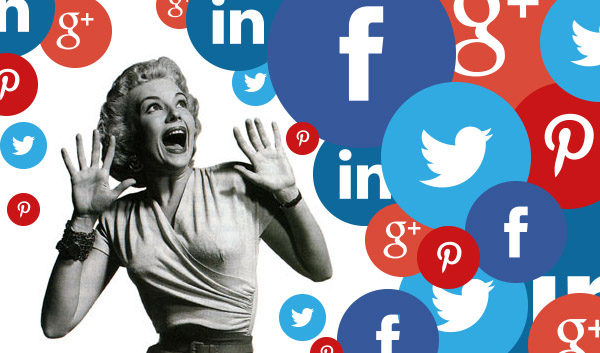By Ahmed Wafi bin Abdul Rashid
Social media. The most common medium of expressing ones informal opinion in todays futuristic, modern world. We are all obviously very much aware of social media and its different platforms ranging from Facebook to Instagram. A common average teenager will have at least two of the mainstream social media accounts if not more. Mainly Twitter and Instagram as these two are the latest and most in-trend platforms of today. Only God knows what other social media platforms well see in the not-so-distant future.
According to Twopcharts, Twitter boasts nearly 974 million accounts while Facebook boasts over one billion with Instagram claiming to have over 400 million users. Note that Instagram was acquired by Facebook in April of 2012 for $1 billion. Social media really does more good than it does harm and that can be seen very clearly in the number of jobs it has created. Facebook alone employs nearly 12,000 people around the world with offices in Amsterdam, Singapore, Stockholm, Tokyo and even in Kuala Lumpur, among others.
Time magazine dubbed Facebook as œThe third largest country in the world in 2010.
We use social media just about every day and quite often too really. In fact, a lot of us would admit to tweeting ˜Im hungry at least once in their life but what we put on the internet will be there to stay in cyberspace for virtually eternity. Unless of course we choose to delete our posts. Even then we never know if someone has actually took a screenshot of it. We also tend to underestimate the power we have on our social media accounts. Some people believe that the social media played a vital role in spreading the fire of revolt around the Middle East throughout 2010 to 2013 during the Arab spring.
The Arab spring was allegedly started by a simple man, a fruit seller in Tunisia named Mohamed Bouazizi, a 26-year-old just trying to support his widowed mother and six siblings at home. Unfortunately, Mohamed did not have a permit to sell the fruits and was told to hand over his wooden cart. A commotion followed soon after and he was slapped by a policewoman.
What he did shortly after brought the Middle East on their feet and out of their homes, fighting for justice. Mohamed then stormed a government building and set fire to himself. Obviously, people recorded this incident and passed it around the internet and it spread like fire on dry grass. Some might say this was an act of stupidity while others say it was out of desperation and even bravery. Whatever it was, this act made the people realise that they would rather die on their feet than live on their knees.
Other recent humanitarian issues were seen to be publicised by means of social media, most notably Twitter. During the heat of the Syrian refugee crisis, a lot of people were very critical of Saudi Arabia and other rich Arab nations for not accepting any refugee into their country. Many were also angry with the Malaysian government for choosing not to accept the Rohingya refugees who were escaping the genocide in their country.
Twitter also helps spread the news of other humanitarian issues that is not covered by mainstream media. Some even might go as far as to say that Twitter is more objective and less bias than many mainstream news broadcasters because of the different points of view that are brought to the attention of the readers concerned.
This could be seen during the heat of the Palestinian and Israeli conflict earlier last year where many Western mainstream news media were heavily backing Israel and made it seemed very obvious that they were trying to make Palestine look like the bad guy.
The world was not fooled.
On a smaller scale, we, the users of Twitter will tend to see tweets about a sick child, a missing car or even a missing person. These tweets will be spread as quickly as possible and more and more people will be made aware of the problem one is facing. The problem with this is that when a person hits the retweet button, they do it simply for the sake of spreading the news hoping that someone will pay attention and maybe find the missing whatever without actually paying attention to the details of missing belonging such as the plate number or the facial features of the missing child.
Nevertheless, it may help the cause of the person in distress, although not as effective as he or she would have liked.
The main disadvantage the social media has is also actually one of its advantages. News around social media spreads like wildfire. Why is this a bad thing? Simply because fabricated stories are spread almost as quickly as authentic news and people nowadays are likely to believe anything just to add a little spice to their life.
Another notable disadvantage of social media is the irony of its name. Despite being called social media it has the tendency to make people anti-social and disconnect themselves from the real world. Apparently, life is more interesting when seen through the tiny screen on your phone rather than the window to the outside world. Many videos of bullying or fighting have spread around social media and there are even multiple Twitter accounts and Facebook pages dedicated to street fights. Why dont you put down your phone and do something, man?
All in all, social media is a very useful tool to spread and to receive information as long as you follow the right accounts and as long as you dont overuse social media like most of us are doing. Hopefully we can change. Maybe right after I post this picture on Instagram.***
